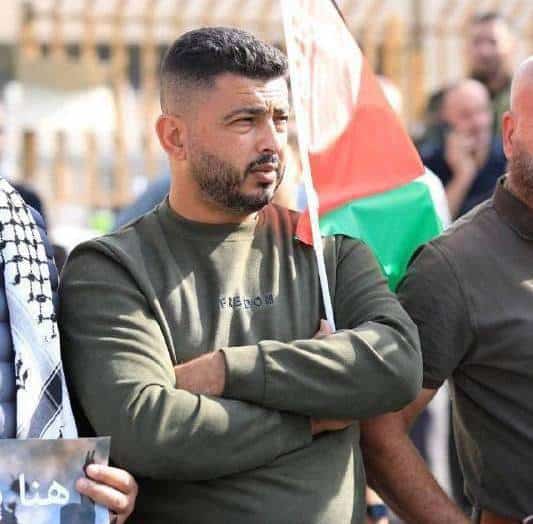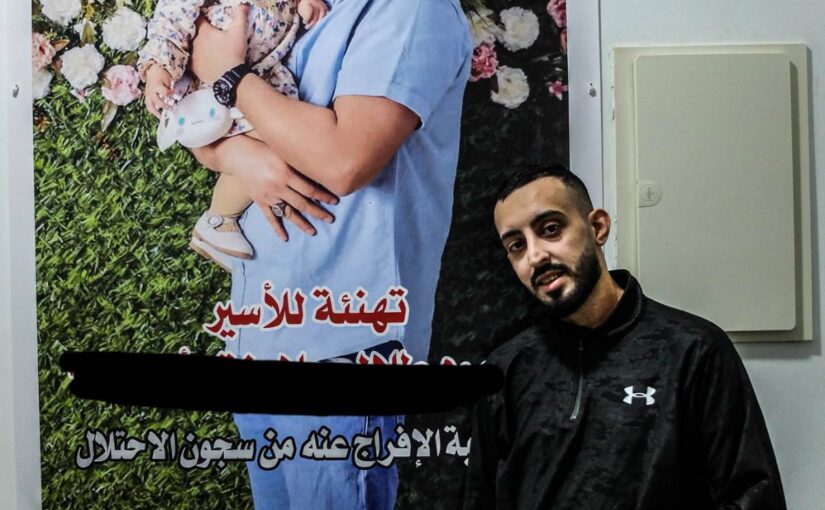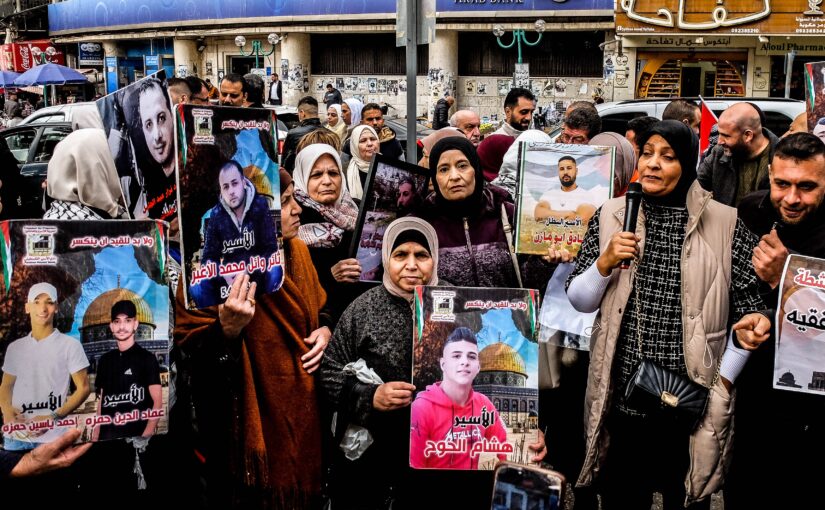Tag: Prisoner
-

Palestinian Activist Ayman Ghrayeb Hospitalized; Facing Administrative Detention
FOR IMMEDIATE RELEASEThursday, November 20, 2025 Ayman Ghrayeb, a prominent Palestinian grassroots activist based in the Jordan Valley, was arrested by Israeli forces on Monday, November 17, and was forcibly disappeared for two days before his lawyers were given any information about his whereabouts. Throughout the first two days of his arrest, both the Israeli…
-

Torture as a daily routine: a witness from Israeli prisons
His face is hollowed out, white skin pulled over prominent cheekbones. The eyes, tired but wide open, never stop. Abed just got out of Al-Naqab prison in southern Israel five days ago. He still can’t believe it. “I lost 60 kilos in less than a year.” He shows a giant picture of himself hanging in…
-

The voice of family members of detainees in Israeli jails
On Monday 25 November, about eighty women, mothers, sisters and wives, gathered in Nablus, in the West Bank, to demonstrate in solidarity with the nearly 100 women detained in Israeli jails, along with around 12,000 men, to demand their release and an end to the ongoing genocide in Gaza. Their family members have been in…
